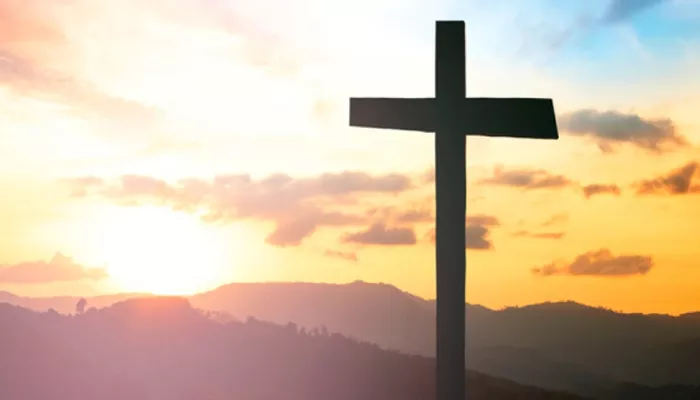Christmas is often seen as a time of joy, celebration, and togetherness, marked by festive decorations, carols, and family gatherings. However, not all Christian denominations and churches embrace this holiday. For some, the decision to refrain from Christmas celebrations is rooted in theological beliefs, historical contexts, and cultural practices. This article delves into the reasons why certain churches choose not to celebrate Christmas, exploring their perspectives and the implications of this decision.
Theological Considerations
One of the primary reasons some churches do not celebrate Christmas is theological in nature. Certain denominations, particularly those that adhere to a strict interpretation of the Bible, argue that Christmas lacks a biblical basis. They highlight that the New Testament does not provide a specific date for the birth of Jesus Christ, and the celebrations that have developed over the centuries are viewed as human inventions rather than divine mandates.
Emphasis on Scripture
For many of these churches, such as the Jehovah’s Witnesses and some branches of the Restoration Movement, the emphasis lies on adhering strictly to scriptural teachings. They believe that celebrating Christmas diverts attention from the core teachings of Jesus and the message of the gospel. Instead, they prefer to focus on the life, death, and resurrection of Christ, which they see as central to their faith.
Rejection of Pagan Influences
Some churches also argue that Christmas is intertwined with pagan traditions. The incorporation of various customs, such as the Christmas tree and gift-giving, is seen as a compromise with secular culture and a departure from the purity of the Christian message. The early church adopted December 25 as the date for Christmas to coincide with pagan winter solstice celebrations, which some denominations believe dilutes the significance of Christ’s birth.
Historical Context
The historical context surrounding Christmas plays a significant role in why some churches choose not to celebrate it. The origins of Christmas celebrations can be traced back to early Christianity and its efforts to attract converts. The blending of Christian and pagan customs has led to a perception that Christmas is not a wholly Christian holiday.
The Council of Nicaea
In 325 A.D., the Council of Nicaea played a crucial role in formalizing Christian doctrine, including the date of Christmas. The decision to celebrate Christ’s birth on December 25 was influenced by the desire to create a unified Christian holiday that could overshadow pagan festivities. As a result, some churches view the choice of this date as a historical compromise rather than a divinely inspired command.
Reformation Influence
During the Protestant Reformation, many reformers sought to purify Christianity by returning to biblical foundations. Figures such as Martin Luther and John Calvin emphasized scripture over tradition, which led some groups to reject Christmas due to its lack of explicit biblical support. This historical backdrop has contributed to the continuation of anti-Christmas sentiments within certain Protestant denominations.
Cultural and Social Factors
Cultural factors also play a significant role in the decision not to celebrate Christmas in some churches. These factors include societal values, community expectations, and the desire to maintain a distinct identity as a faith community.
Maintaining Distinctiveness
For churches that do not celebrate Christmas, abstaining from the holiday is often a way to maintain a unique identity. This distinctiveness can help reinforce community bonds among members who share similar beliefs and values. By opting out of Christmas celebrations, these churches express their commitment to living according to their understanding of scripture and their rejection of cultural norms that do not align with their beliefs.
Focus on Other Celebrations
Many churches that do not celebrate Christmas prioritize other significant events in the Christian calendar, such as Easter or Pentecost. They emphasize the importance of these events, which they believe hold greater theological significance than the birth of Christ. For these churches, the death and resurrection of Jesus are paramount, overshadowing the celebration of His birth.
Community Impact
The decision not to celebrate Christmas can have a profound impact on church communities. While it may foster a sense of unity among members, it can also lead to isolation from the broader cultural context in which they exist.
Isolation from Society
Churches that abstain from Christmas celebrations may find themselves isolated from the larger society, which often places great importance on the holiday. This isolation can create challenges for members, particularly those with families and friends who do celebrate Christmas. The pressure to conform to societal norms can lead to tension and conflict within families and communities.
Alternative Celebrations
In response to the challenges of isolation, some churches that do not celebrate Christmas may offer alternative events or observances during the holiday season. These alternatives often focus on service and community outreach, reflecting their commitment to the teachings of Christ. Such initiatives might include food drives, community service projects, or gatherings focused on prayer and reflection.
Conclusion
The decision not to celebrate Christmas within certain churches is a complex issue influenced by theological beliefs, historical context, and cultural factors. For these churches, the absence of Christmas celebrations is not merely a rejection of a holiday; it is a conscious choice to adhere to their interpretation of scripture and to maintain their distinct identity within the Christian faith. As the world continues to celebrate Christmas with joy and enthusiasm, it is essential to recognize and respect the diverse beliefs and practices that shape the faith of different Christian communities. Understanding the reasons behind this decision can foster a greater appreciation for the rich tapestry of Christian tradition and belief.
In a world where inclusivity and diversity are increasingly valued, the conversation around the celebration of Christmas remains relevant. While the holiday brings joy to many, it also raises important questions about faith, tradition, and identity. Ultimately, the choice to celebrate or not celebrate Christmas reflects a broader journey of faith, a pursuit of understanding that encompasses both personal beliefs and communal practices.
Related topics:

